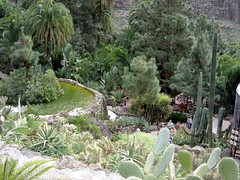Tags: Gran Canaria, Tenerife, Canary Islands, Fires, Incendio, Disaster, Tragedy, Catastrophe, Rob Patterson, Crisis, Knowledge Management, KM, Knowledge Sharing, Collaboration, Communities, Social Computing, Social Networking, Social Software, Web 2.0, Social Media, Trust, Dave Snowden, Twitter, Blogs, Wikis, Podcasts, Social Bookmarks, Social Capital
 This week is probably one of those weeks that I feel most of us could have done without. The disaster of the fires of both Gran Canaria and Tenerife has been one of those that leaves with you a deep sense of sorrow and a mark that will remain there for a long while. I am sure that from here onwards things will improve a great deal, the countryside will recover all of its own beauty, burnt houses would get re-built, people would go back to their usual routines, etc. etc. Yet, I feel that things would never be the same.
This week is probably one of those weeks that I feel most of us could have done without. The disaster of the fires of both Gran Canaria and Tenerife has been one of those that leaves with you a deep sense of sorrow and a mark that will remain there for a long while. I am sure that from here onwards things will improve a great deal, the countryside will recover all of its own beauty, burnt houses would get re-built, people would go back to their usual routines, etc. etc. Yet, I feel that things would never be the same.
While I have been trying to share with you some of what we are going through in the last few days with the fires I just couldn’t help thinking about the superb weblog post that Rob Paterson put together a couple of days ago on Blogging and Crisis – The Fire in the Canary Islands. In it, Rob comes to the conclusion that blogging could surely well be a good medium to get the message across in a crisis and get everyone informed and up to date with the latest developments, as well as identifying how technology could serve for a better purpose than just all of that techie stuff we are used to: Getting people together helping them manage those specific critical moments in a much more efficient and effective way by making use of social computing.
While I agree with him 100% on his argument, I am starting to think that I would want to take things further into the next level, at least, as far as Knowledge Management, Collaboration, Communities and Social Computing are concerned.
Over the last few hours, now that the fires are on the verge of being totally extinguished, there have been a number of different discussions, mainly taking place locally, on whether this catastrophe could have been avoided, at least, to some extent. There have been some concerns about some degree of lack of coordination between the different groups involved and the local population, and while those discussions keep going on, I just couldn’t help thinking about a weblog post I created a while ago where I commented on some Knowledge Management Rules by Dave Snowden.
“[…] if you ask someone, or a body for specific knowledge in the context of a real need it will never be refused. If you ask them to give you your knowledge on the basis that you may need it in the future, then you will never receive it” (Emphasis mine)
That is just so accurate! I bet that if we would all have applied some of those different KM rules from the very beginning, things would have been completely different. As a starter, different groups would have found out about themselves and what they know, and how that relates to other groups and their knowledge. Secondly, they would have had a chance to collaborate and communicate from way before, giving them an opportunity to learn the strengths and weaknesses from all groups, which would help tackle crises like this one much more effectively. People from the various groups would get to trust each other much more, because of the information and knowledge they have shared all along, next to all of that social capital they would have built,, around that very same subject: the extinction of fires on a massive scale. And the list goes on and on and on.
I don’t want to make this weblog post longer than necessary, so I would probably be commenting on this at a later time some more, but I can imagine how incredibly different the situation would have been if people from those groups would have had access to blogs, perhaps a wiki, Twitter (Of course!), social bookmarks of meaningful resources, podcasts from different group members, tagging, syndication, etc. etc., yes, the whole lot around social software, in order to help them share what they know with others so that when that knowledge is really needed everyone would know how to react and help coordinate everything in such major crises and most importantly people would trust each other to do the job properly and fully coordinated.
Remember the motto “Think globally, act locally!” that I have talked about in the past? This is probably what Knowledge Management has been about all along, and perhaps the right direction to help tackle crises like the one we have been going through in the last few days.
5 thoughts on “Blogging and Crisis – The Fire in the Canary Islands and the Role of Knowledge Management”